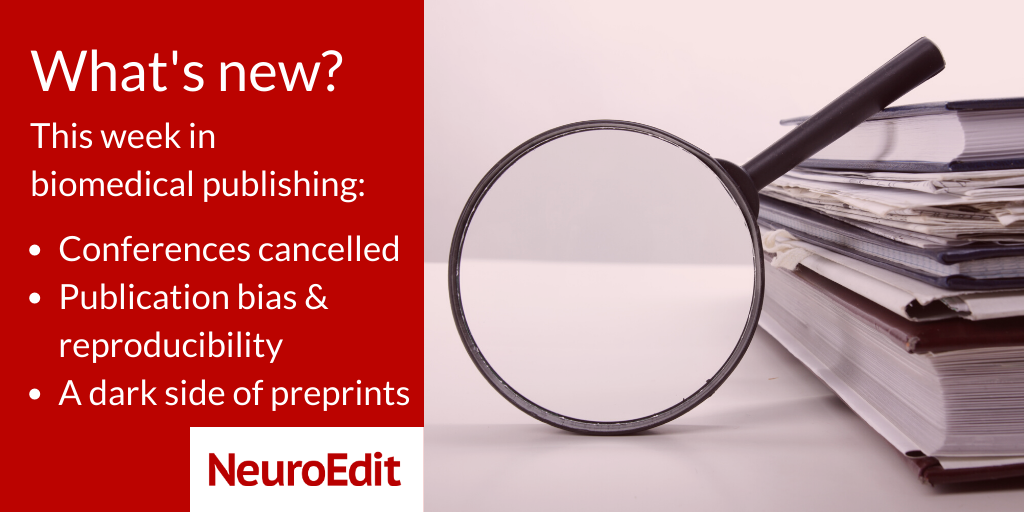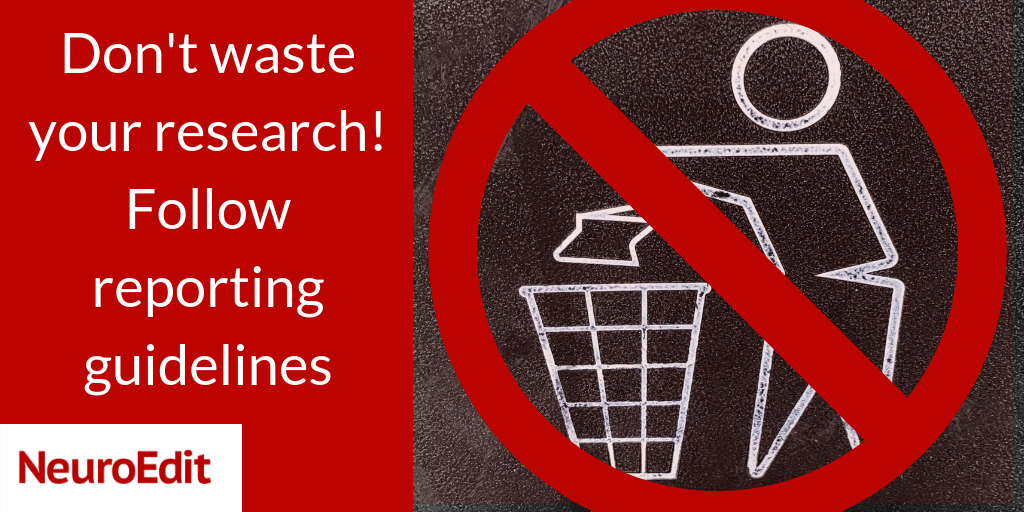|
Post by Julia Slone-Murphy 6–13 March
This week, COVID-19 continues to cause havoc as conferences are postponed or cancelled. But biomedical publishing life goes on behind the coronavirus headlines, as researchers examine publication bias and reproducibility, and a dark side to preprints emerges.
0 Comments
28 February – 6 March
This week, Coronavirus (COVID-19) dominates, China moves to tackle its harmful publish or perish culture and, in lighter news, how art can contribute to science.
Post by Julia Slone-Murphy, Advanced Professional Member of the CIEP
Post by Julia Slone-Murphy 21-28 February
This week, there's a buzz about peer review research while Molecular Brain updates its policy on data sharing, and more journals go open access.
Post by Julia Slone-Murphy | Photo by Hawksky on Pixabay
This is my final post in this series – so allow me to climb onto my soapbox. I believe this is the most important reason for making your manuscript as good as it can be. If you take one thing from this series, make it this: your readers are not just your peers.
Post by Julia Slone-Murphy | Photo by rawpixel.com from Pexels
So you’ve written your paper and it’s been accepted for publication – hooray! But that’s not the end of the story. There’s little point in publishing if your paper is never going to be cited, or perhaps even read! The way you write your manuscript can not only help you get published but can also serve to boost citations.
A shocking amount of health research is thrown away. Are you sitting down?
Post by Julia Slone-Murphy
Peer reviewers are busy people. You may have already reviewed a manuscript yourself and know first-hand how the review has to be squeezed in between writing, teaching, and mentoring duties – oh, and actual research – all on a voluntary basis.
Publishing is essential for your research career. It provides visibility for your work, satisfies funding conditions, demonstrates your capability as a researcher and your input to the scientific community, and updates your peers on the current state of knowledge. But it’s easier said than done...
Post by Julia Slone-Murphy Research papers are boring, aren’t they?
|
We've helped researchers publish in:
/
- 1
- 2
- 3
- 4
- 5
PNAS, NeuroImage, Journal of Neuroscience, Scientific Reports, Neurobiology of Aging, Frontiers in Molecular Neuroscience, Journal of Psychiatric Research, Journal of Physiology, Frontiers in Cellular Neuroscience, Journal of Alzheimer's Disease, Journal of Neurochemistry, American Journal of Physiology: Cell Physiology, Behavioural Brain Research, Frontiers in Neurology, and more...
/
- 1
- 2
- 3
- 4
- 5
/
- 1
- 2
- 3
- 4
- 5
PLoS One, Brain Research, Psychiatry Research, Brain Research Bulletin, European Journal of Pharmacology, Psychological Research, International Journal of Developmental Neuroscience, Metabolic Brain Disease, Journal of Cardiovascular Pharmacology, Journal of Molecular Neuroscience, Cell and Molecular Neurobiology, Journal of the Neurological Sciences, Neuroscience Letters, and more...
/
- 1
- 2
- 3
- 4
- 5
- 0
- 1
Leave the manuscript with us. Your research needs you.
© 2011–2024 NeuroEdit Ltd.
NeuroEdit Ltd is a company registered in England and Wales, number 10232582.
Registered office address: Dale House 64 Fink Hill, Horsforth, Leeds, England, LS18 4DH.
Privacy policy
NeuroEdit Ltd is a company registered in England and Wales, number 10232582.
Registered office address: Dale House 64 Fink Hill, Horsforth, Leeds, England, LS18 4DH.
Privacy policy











 RSS Feed
RSS Feed
